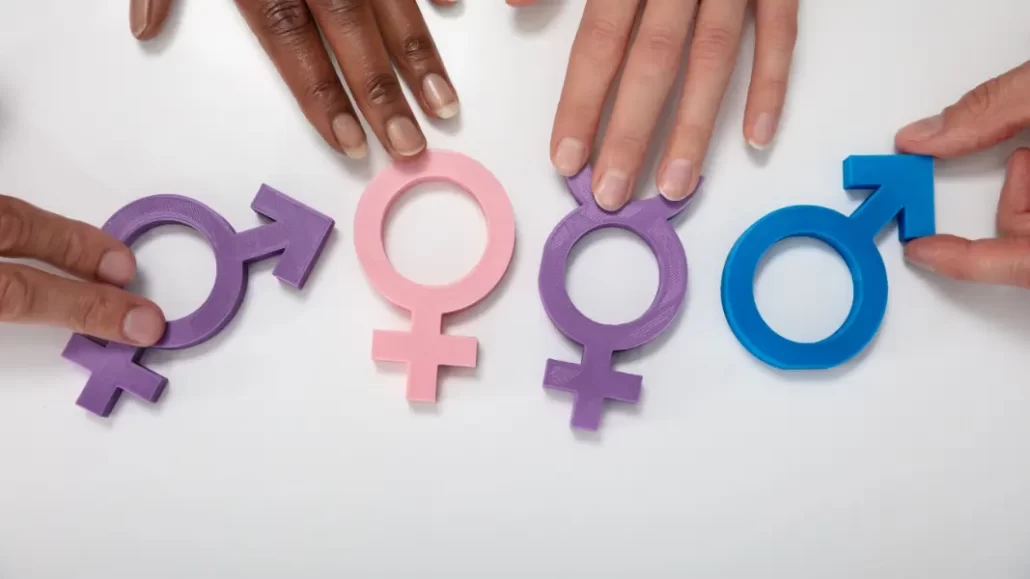The ways that gender and mental health intersect can be fairly complex. The Human Rights Campaign describes gender as “one’s innermost concept of self as being a woman, man, or a blend of both or neither – how individuals perceive their gender and what they call themselves. One’s gender identity can be the same or different from their sex assigned at birth.” Let’s dive into different types of gender identities.
Gender Identities
Most people identify along the gender binary of being a man or woman. However, some gender identities, other than men and women, include non-binary, agender, and genderfluid. Most research conducted on mental health and gender includes the binary gender terms and assigns participants as either male or female. This is associated with their biological sex rather than their gender identity.
Transgender individuals identify with a gender that is not the binary gender assigned to them at birth based on their biological sex. This group includes trans binary people, like trans women and trans men, and non-binary individuals. Cisgender people identify with the gender they were assigned at birth.
Read more about gender identity here.
Gender and Mental Health
Research with trans participants has shown that they are more likely than cisgender people to face mental health issues. This includes issues related to the increased trauma and discrimination they may experience for being trans. One’s gender identity can cause them to experience being marginalized by systems of oppression like sexism and transphobia. Research has shown that experiencing marginalization and discrimination has consequences for an individual’s mental health and wellbeing.
Read about microaggressions here.
Additionally, studies have shown that depression is common in trans binary and non-binary people. It was found that over half of trans women and trans men have been depressed and that 32% of each of these populations have attempted suicide.
To expand on gender discrimination and mental health, we know that experiencing trauma makes a person more vulnerable to experiencing mental health issues like complex PTSD, PTSD, etc.
Gender discrimination like sexism and transphobia can be traumatic for an individual to experience, which suggests that individuals facing it are more vulnerable to mental health issues. This in turn may be a factor in the higher levels of depression for many of these individuals.
Additionally, research indicates differences between how people identifying within the binary genders of men and women experience mental health issues. Women experience discrimination and trauma more than men due to sexism. Anxiety and depression are more common in women, and substance use issues are more common in men. A possible explanation for women’s higher levels of anxiety and depression may be that gender discrimination and sexism is connected to lower mental health well being.
Because of these dynamics, gender is deeply connected to individual mental health. Forces of discrimination and oppression based on gender can have huge impacts on mental health and well being. Different people may be vulnerable to struggling with mental health issues due to their gender, especially those who are marginalized.
Are you interested in exploring your gender identity and how it connects to your mental health? Reach out to myTherapyNYC to find out which of our therapists would be a good fit for you!
How do you feel your gender identity impacts your mental health and well-being? Join the conversation in the comments below.
- Gender and Mental Health - June 29, 2023
- What Does It Mean To Be Asexual? - November 17, 2022
- How to be a Good Friend: Tangible Ways to Support a Struggling Loved One - July 21, 2022






1 comment
Anna,
Thank you for sharing your wisdom and insight! Marginalization and discrimination (transphobia & sexism) absolutely impact mental health and quality of life.